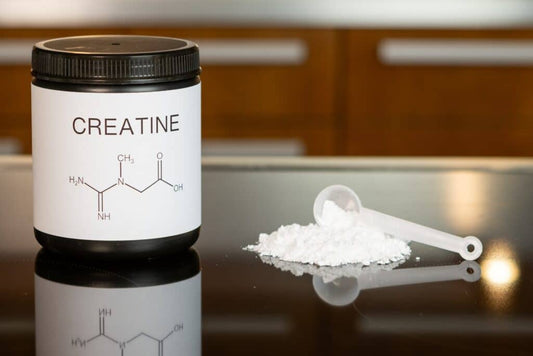From Concept to Consumers: The Approval of Health Supplements in Canada

How much do you actually know about the supplements you take? Within the vast landscape of health supplements, Canadians often find themselves navigating a sea of options promising wellness and vitality. Behind the allure of these products lies a regulatory process designed to ensure safety and efficacy. Let's delve into the intricate journey health supplements undergo to obtain the coveted Natural Product Number (NPN) in Canada and explore the nuanced world where science, skepticism, and consumer health intersect.
The Regulatory Path: Navigating Health Canada's Approval Process
The journey for a health supplement to acquire an NPN in Canada is a meticulous one. Health Canada, the regulatory authority, assesses products for safety, quality, and efficacy before granting an NPN. The process, which sometimes takes a year or more, involves a thorough review of scientific evidence supporting the health claims made by the product.
However, the reality is that not all health supplements are backed by robust scientific evidence. Some lean on concepts like homeopathy, which has faced criticism and skepticism within the scientific community. Homeopathy is a system based on the idea that "like cures like" and that diluting substances can enhance their healing properties. Despite its historical popularity, modern scientific understanding often challenges the principles of homeopathy, a pseudo-medicine which has managed to fail every double blind study in its more than two hundred year history.
The Gray Area: Lack of Scientific Support
One significant concern in the realm of health supplements is the dearth of scientific backing for many products. A substantial number enter the market with limited or no empirical evidence supporting their proclaimed benefits. This leaves consumers grappling with uncertainty about the actual impact of these supplements on their health.
Consider the example of herbal remedies that boast various health benefits. While some herbs indeed possess medicinal properties, the dosage and purity of these substances in supplements can vary significantly. This variability raises questions about the reliability and consistency of these products. And whether or not consumers are getting value for their money.
Debunked Sciences and Consumer Awareness
The presence of debunked sciences, such as homeopathy, in the realm of health supplements underscores the need for heightened consumer awareness. Understanding the scientific basis of a product is crucial for making informed choices about one's health.
Consumers may unwittingly invest in supplements that lack scientific support, hoping for miraculous results. The placebo effect can play a role, creating a perception of improvement even in the absence of concrete evidence. This phenomenon contributes to the persistent popularity of certain supplements despite the scientific community's reservations.
Controversies and Criticisms
The issue of health supplements lacking scientific backing has not escaped criticism. Some critics argue that the regulatory process, while robust in principle, may fall short in practice. The sheer volume of supplements entering the market poses a significant challenge for regulatory bodies, making it challenging to thoroughly scrutinize each product.
Moreover, controversies arise when certain supplements make exaggerated or unverified claims about their benefits. Misleading marketing practices can misguide consumers, leading them to believe in the efficacy of products that may offer little more than a placebo effect. Regulation around so called “influencer” marketing, where paid spokespeople tout supplements without any actual personal experiences is also overdue.
Balancing Act: Empowering Consumers and Nurturing a Thriving Industry
Addressing the challenges surrounding health supplements in Canada requires a multifaceted approach. Strengthening the regulatory framework to enhance scrutiny, especially regarding scientific evidence, is paramount. This could involve increased collaboration between regulatory bodies and the scientific community to ensure that only products with substantial support enter the market.
Simultaneously, fostering consumer education is crucial. Empowering individuals to critically evaluate health claims, understand scientific principles, and navigate through marketing hype is essential. A well-informed consumer is better equipped to make choices aligned with their health goals.
In conclusion, the world of health supplements in Canada is a complex one, filled with promise and pitfalls. While the regulatory process aims to safeguard consumers, challenges persist. It's imperative for both regulatory bodies and consumers to play active roles in ensuring that the supplements on the market are not only safe but also backed by credible scientific evidence.
Key Takeaways:
- Health supplements in Canada undergo a rigorous regulatory process to obtain an NPN, but gaps exist in scientific scrutiny.
- Some supplements rely on debunked sciences like homeopathy, raising concerns about their efficacy.
- Lack of scientific support for many supplements prompts questions about their actual impact on health.
- Consumer awareness is crucial in navigating the world of health supplements, as misleading marketing practices can misguide individuals.
- Strengthening the regulatory framework and fostering consumer education are essential for a balanced and thriving industry.



